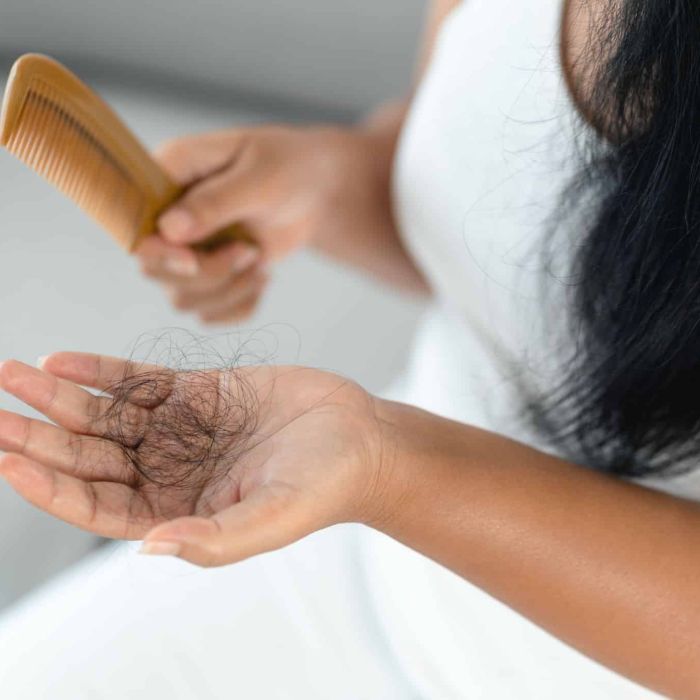It’s the diagnosis no man wants to hear, but plenty receive each year: low T. Low testosterone has become widespread across the U.S., with an estimated 4-5 million American men experiencing symptoms each year. So, what causes low testosterone and is there a way to effectively treat it?
While low testosterone primarily affects older men over the age of 30 (19-39% to be exact), younger men as early as 25 may begin to fall victim to the onset of low T symptoms like erectile dysfunction and fatigue. Oftentimes, these symptoms can be embarrassing and may even lead to a lack of libido in the bedroom.
Here’s the good news: in this article, we are going to tell you everything you need to know about low testosterone and how our ageRejuvenation clinic can help you overcome your low T symptoms. Let’s get started.
What Causes Low Testosterone in Men?
Testosterone (T) is a key male sex hormone that is produced by the testicles and is incredibly important for proper sexual development in males.
Testosterone begins production during puberty and allows boys to develop masculine features, such as:
- Deeper voices
- Facial hair
- Body hair
- Muscular development
Most importantly, testosterone is needed for the production of sperm and can greatly affect fertility.
Age Affects Testosterone Production
T levels vary greatly from person to person, but most men have one thing in common: T levels will begin to decrease with aging. In fact, by the age of 30, many men will start to see the signs of a drop off in testosterone production.
While this is common and completely natural, some people experience a larger decrease in this important hormone than others. When men have lower testosterone than what is considered normal for their age group, they are diagnosed with what is called Testosterone Deficiency Syndrome (TD).
So what does low T mean for those who have it?
Common Low T Symptoms
First and foremost, all men should be aware of the most common low testosterone symptoms. Physical symptoms men typically experience include:
- Erectile dysfunction
- Low libido
- Hair Loss
- Osteoporosis
- Gynecomastia
- Low energy
- Decreased muscle mass
- Infertility
While these signs are more evident of testosterone deficiency, sometimes symptoms may not be as clear. This leads us to our next point.
Mental Wellbeing and Signs of Low Testosterone
Low motivation at work, memory loss, and poor focus can also be attributed to low testosterone. Furthermore, low T greatly affects your state of mind and can bring about many health obstacles like:
- Mood swings
- Anxiety
- Stress
- Depression
These symptoms are often referred to as andropause and can be equivalent to menopause symptoms experienced in women.
The Link of Testosterone and Mental Health
Low T is nothing short of a blow to the ego for many men, and can leave those battling it feeling insecure with the lack of ability to perform in both the bedroom and in life. Here’s why.
Your cells contain testosterone receptors which can greatly impact your brain functions. Michael A. Werner, MD, a board-certified urologist from New York explains, “Low levels of testosterone can cause a cycle of a man having low energy, thus not exercising, then gaining weight and feeling less attractive.”
One study was conducted with more than 600 Dutch men and indicated a significant association between depression and low testosterone. The study concluded that men with low T were more likely to battle symptoms of depression.
When Does Testosterone In Men Decrease?
The traditional answer to this question coincides with the aging process. Nowadays, it isn’t as straight-forward, as now even males in their early twenties are starting to reap the ill-effects of low testosterone.
According to the Cleveland Clinic, a man’s testosterone levels will begin to decline year-over-year by about 1% starting at age 30. However, there are many other answers to what causes low testosterone in men.
Poor Lifestyle
Due to poor lifestyle choices, young men are beginning to experience the onset of low T as early as 21. This is not considered a natural decline of testosterone, since external factors and health conditions can be at blame.
Low T in young men can be linked to lifestyle habits such as:
- Drugs and alcohol
- Poor sleep habits
- Poor diet
- Stress
- Lack of exercise
If low testosterone is due to any of these factors, it is usually very simple to treat with basic lifestyle changes.
Underlying Medical Reasons for Low T
Finally, low T can be greatly affected by underlying medical issues, such as:
- Cancer
- Obesity
- Diabetes
- Changes in thyroid function
- Kidney damage
- Traumatic brain injuries
Low testosterone can come on at various ages for a wide range of reasons, but if you are in your early twenties or even thirties, you should not ignore the symptoms.
What Is the Best Treatment For Low T?
If low T is affecting your everyday life, it may be time to find a low T treatment center like ageRejuvenation.
While there are always new pills and injections launching into the marketplace to solve the mysteries of low libido, the simplest tried and true method of treating low testosterone is with Testosterone Replacement Therapy (TRT). This treatment can help you overcome negative low T symptoms such as low libido, fatigue, mood swings, and even erectile dysfunction.
Testosterone is either administered via injections or inserted in pellet form and lasts about 6 months. The method you choose to use will be based on the consultation you have with your doctor regarding lab results and what is best suited for you and your wellness.
Get the Low T Treatment You Need With ageRejuvenation
At ageRejuvenation, we believe that aging is a natural part of life. However, you don’t have to live with the negative symptoms that can come along with it.
With our extensive expertise in integrative medicine, we perform a comprehensive lab panel, different from a primary or urologist, to better understand your hormone levels and any potential imbalances.
Our team of medical professionals are here to create a customized low T treatment plan made just for you. Call now and schedule your free consultation today!








